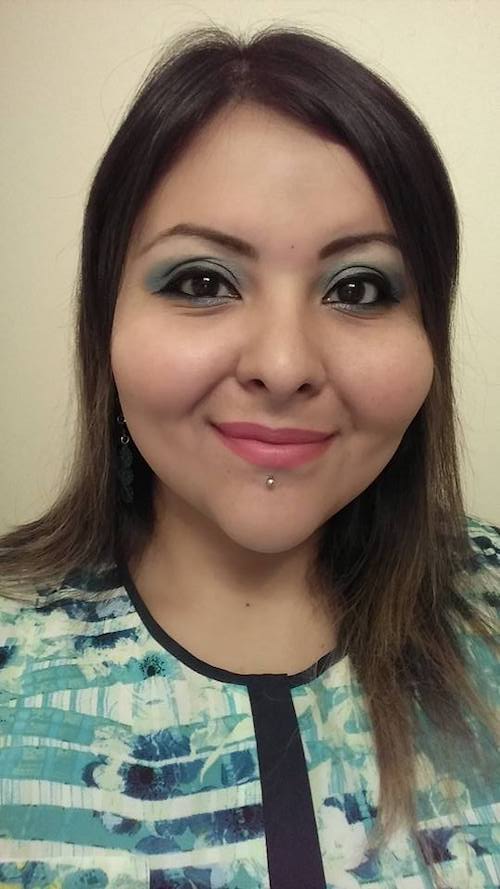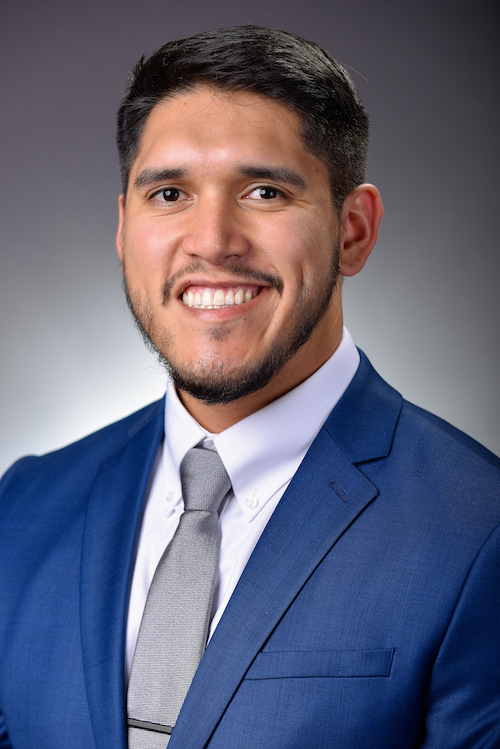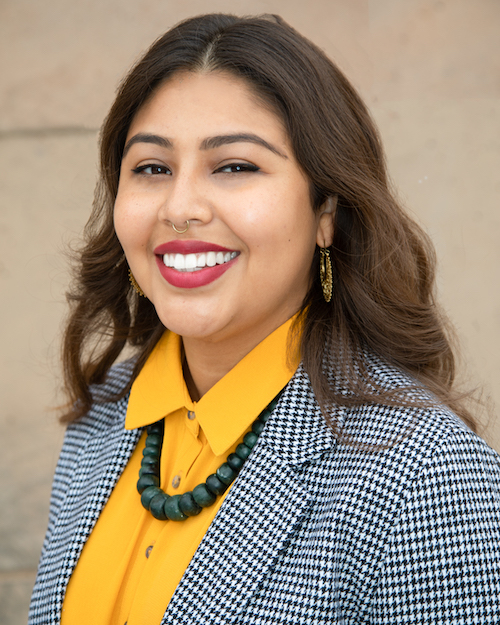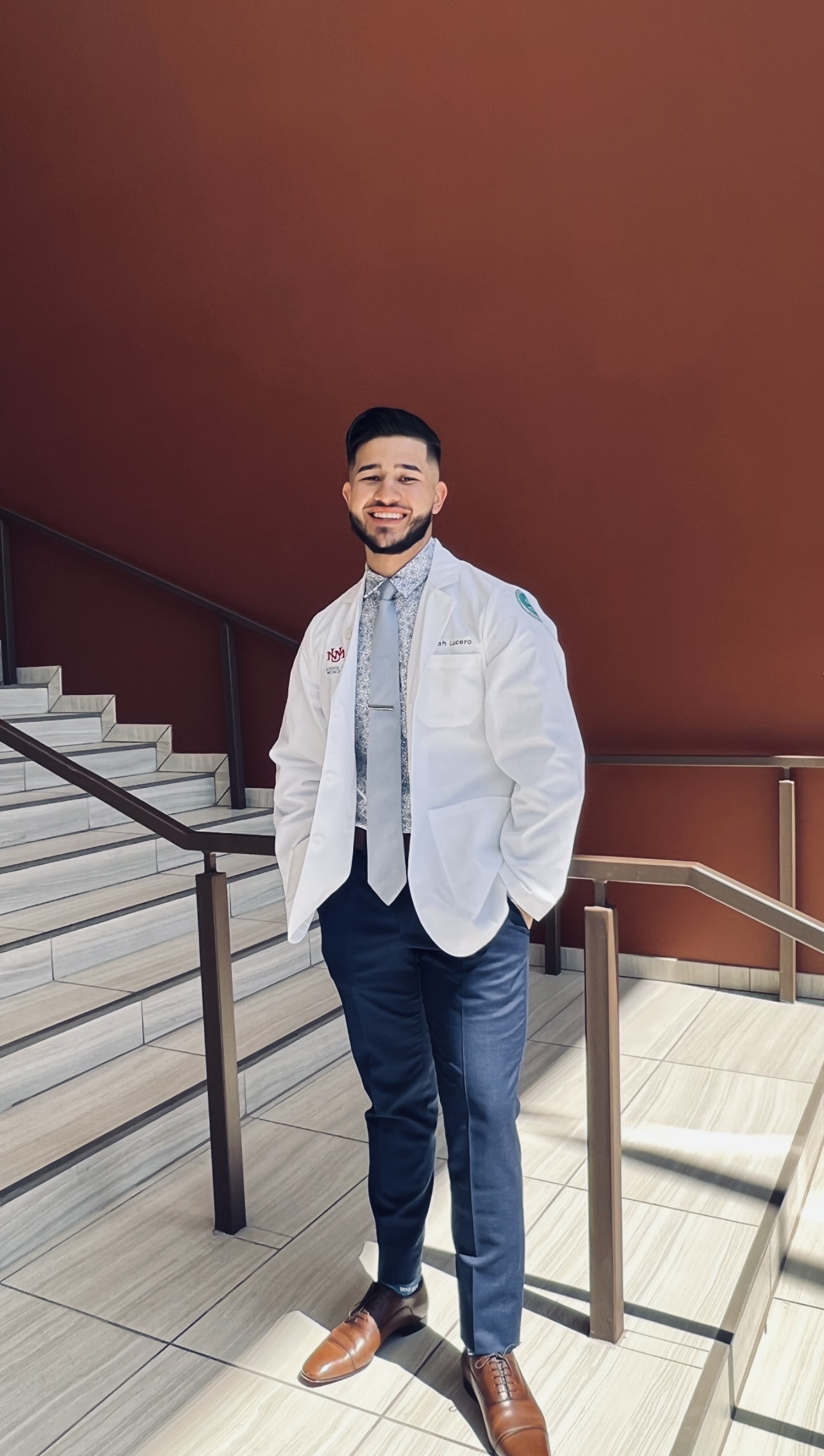Graduate El Puente Research Fellows
 Florence Emily Castillo
Florence Emily Castillo
Emily is a 6 th year PhD Student in the Department of Sociology. Originally from Dallas, Texas she attended Eckerd College in St. Petersburg, FL where she double-majored in International Relations & Global Affairs and Spanish. After spending time teaching English in Korea and Argentina before entering the corporate world for a few years, she returned to the University of Florida where she received her Master’s Degree in Latin American Studies before continuing on to UNM for her PhD.
Research Statement: Emily’s research interests center on youth of color and their relationship with the educational system. She focuses primarily on the ways in which current mainstream models of education affect students of color, particularly when their knowledges and experiences are not centered or valued in the classroom. Through methods such as Youth Participatory Action Research, she aims to not only understand these inequities in education but to center youth in the research process itself which helps to undo the hierarchies of power that are present in most academic research.
Areas of research include: Race and Ethnicity, Education, Racism & Racialization, Latino/a Studies, Critical Race Theory, Latino Youth Outcomes, Community-Based Participatory Research, Qualitative Methods
Mentoring Philosophy: Emily’s approach to mentoring is based on the Freirean model and is a critique of the “banking” model of education and mentoring in which the mentee is seen as an “empty vessel” in which the expert, or the mentor “deposits” knowledge and information. Instead Emily sees the mentor/mentee relationship as one of mutual learning and growth and one in which she acts as a facilitator to help students unpack and discover the knowledges, skills, and talents that they each uniquely possess. She largely focuses on helping students of color undo the effects of the harmful deficit perspective that educational institutions has of minority students and helps them to understand the community cultural wealth that we each possess from the rich cultural, familial and community backgrounds from which we derive.
 Ronald Orozco
Ronald Orozco
Ronald Orozco was born and raised in Santa Fe, New Mexico. His roots are from small towns in Chihuahua Mexico. He graduated from Capital High School and was a recipient of the UNM Combined BA/MD program. He later graduated from the University of New Mexico with his BA in Health, Medicine and Human Values in fall of 2014. Currently he is a fourth year medical student at the UNM School of Medicine. His plan is to pursue a residency in General surgery and hopes to return and practice at his hometown.
Research Statement: Ronalds research interests include patient quality improvement projects, community healthcare and higher educational mentorship. This includes studying what barriers prevent undergraduate underrepresented students from being prepared for higher educational pursuits.
Mentoring Philosophy: During grade school Ronald was a part of programs like AVID and was selected as a New Mexico Simon Charitable Foundation scholarship recipient. Through those programs he later learned the importance of mentorship and community investment. He has been committed to his community and bringing up underrepresented, minority, first generation students. Mentorship is a catalyst for these students to not only believe they can achieve higher education but know that they can thrive in it. The approach he takes to mentorship is that of his mentors, finding what needs students have beyond school and fostering their beliefs that through adversity comes strength. Being part of programs like El Puente allow him to continue bringing students up the ladder his mentors have done for him.
 Natalia M. Toscano
Natalia M. Toscano
Natalia M. Toscano was raised in Oakland, CA and attended Santa Monica College and transferred to the University of California, Los Angeles, where she received her Bachelors in Chicana/o Studies and American Indian Studies. Having received her Master’s in American Studies, Natalia is now a PhD student in the inaugural graduate cohort in Chicana/o Studies at the University of New Mexico. Currently, Natalia serves as the co-chair for the American Association of Hispanics in Higher Education (AAHHE) Graduate Student Fellows program. She is also a graduate assistant for the CNM-UNM Mellon Humanities Transfer Initiative to increase transfer rates of Humanities scholars at UNM.
Research Statement: Natalia's research is centered on Chicanx cultural production and its entanglements with Chicanx nationalism, Mexican nationalism, and U.S. nationalism via the lens of Chicanx performance studies and cultural studies theoretical approaches. Concurrently, Natalia is developing a digital oral history project of Danzantes in the United States.
Areas of Research: Chicanx studies, Performance Studies, Cultural Studies, Latin American Studies, Mexican Studies, Oral Histories
Mentoring Philosophy: As a recipient of undergraduate programs such as, UCLA’s department of Chicana/o Studies Undergraduate Honors Research Program and UCLA’s Ronald E. McNair Research Program, Natalia is committed to the mission and vision of El Puente. Specifically, as her trajectory through graduate school, has been deeply impacted by the mentorship of these programs. Natalia’s philosophy is grounded in the belief that all students have the capabilities to be knowledge producers and to radically transform the culture of the academic ivory tower. Through mentorship, which Natalia grounds in a comprehensive and holistic approach, she aims to foster meaningful relationships that carry students through their research and graduate school endeavors.
 Noah Lucero
Noah Lucero
Noah is a life-long New Mexican raised in Albuquerque and the surrounding area. In 2022, he graduated with his bachelor’s degree in Biochemistry with a designation from the Honors College at the University of New Mexico. Noah is currently a second-year medical student at the University of New Mexico School of Medicine. During his free time, he enjoys serving his community in efforts promoting healthcare access including Albuquerque’s uninsured and undocumented populations by working as a student-doctor at the One Hope Centro de Vida Clinic. Noah also enjoys hanging out with his friends and family by visiting local trivia nights, catching a movie around town, or eating at local businesses serving up some of the best cuisine such as Monroe’s and Padilla’s. When given the opportunity, he likes to travel and experience live music and concerts as much as possible. Noah is a former El Puente Undergraduate Fellow and is excited to return as a Graduate Research Fellow.
Research Interest: Noah’s main research interests are hospital medicine, healthcare quality improvement, diseases disproportionately affecting Latinx populations, critical care medicine, and investigating atypical disease presentations that appear in the clinic.
Research Statement: Noah is currently working on a quality improvement project to investigate the efficacy of Glucommander insulin calculator to safely transition hospitalized patients from intravenous insulin to long-acting subcutaneous glargine while avoiding dangerous hyper and hypo-glycemic events. Other projects that he has worked on consist of exploring access to and sentiments around geneti
Mentoring Philosophy: As a prior El Puente Undergraduate Research Fellow, Noah understands the importance of building a strong foundation in research to excel in higher education. He credits his experience as an undergraduate with helping him pursue a medical education and continue investigating questions that are important to him and his field. Noah recognizes that there are barriers that are unique to students at a minority serving institution like the University of New Mexico, and that they might stand in the way of competing with peers that do not come from the same background. He recognizes that traditional approaches to academia are not always relevant or effective for all students to excel and is excited to find common ground in mentoring students to help them overcome barriers that might prevent them from conducting research of their own. He also recognizes that there are resources in the community that he can bring to students when his experiences are not enough to address all the factors standing in the way of a mentee’s path to a successful career in academia.